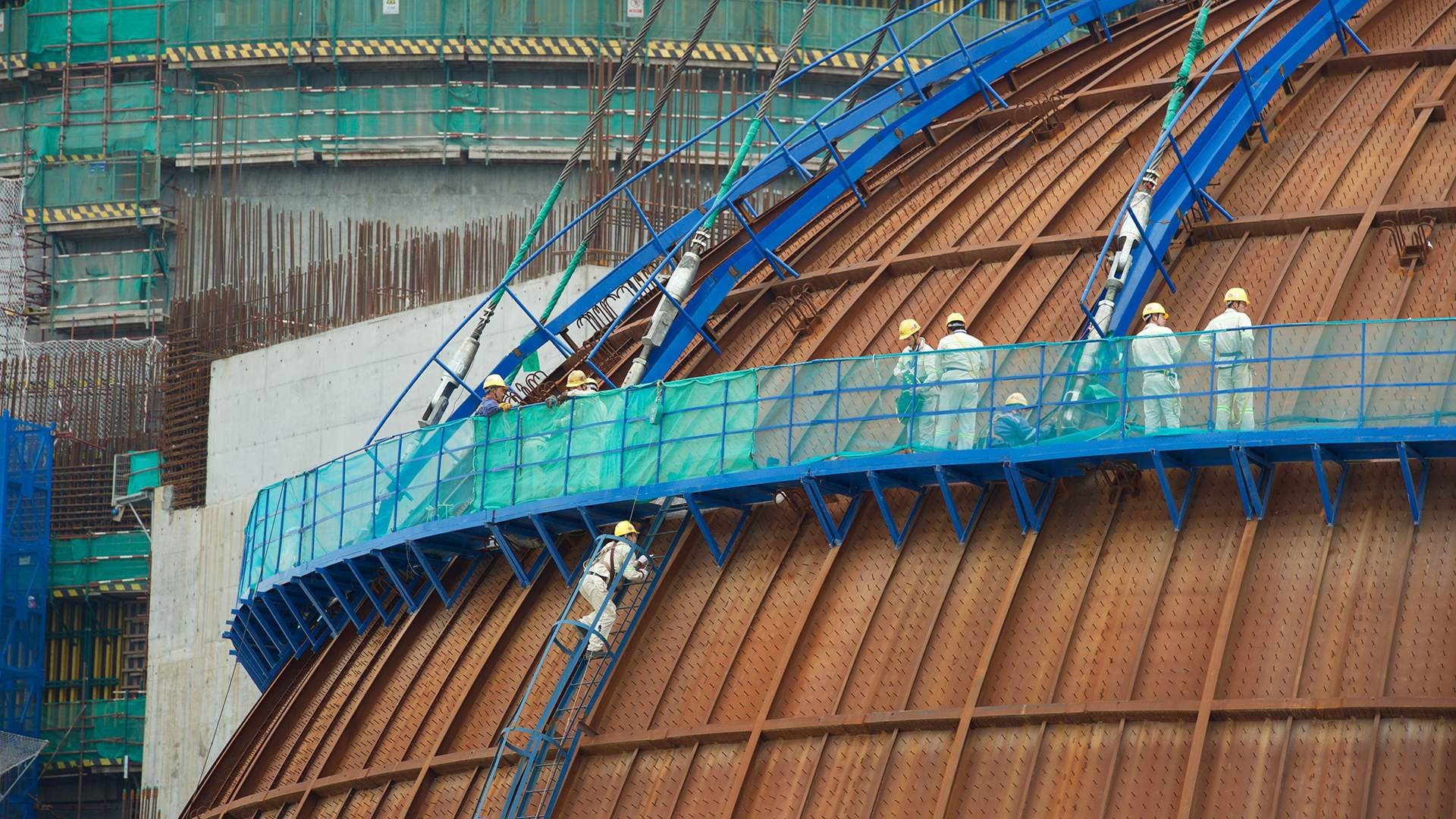
Macron in Kazakhstan in search of uranium and new friends in Russia's backyard
By Rhod Mackenzie
France is persistently searching worldwide to acquire uranium, which is the most valuable resource required for its current well-being. The French leader Emmanuel Macron is currently travelling to Central Asia to fulfill this motive. Although his plans are wide-ranging, they are also linked to thwarting Russia's capabilities.
Macron's tour covers various countries situated in Central Asia. Furthermore, it is worth noting that the French President's trip to Kazakhstan and Uzbekistan is not merely a reciprocal visit following the leaders of the two countries' visit to Paris last year.
The French government, along with the wider Western community, have specific intentions for the former Soviet Union's Central Asian republics, and France has its own vested interests in this area. Recent events in Africa have prompted France to partially review its strategy, with Macron seeking to establish a foothold in Asia.
The reality is that following the military coup in Niger, the long-standing collaboration between France and the country in uranium mining is at risk. France, losing its composure, issued threats of intervention from ECOWAS regional bloc members. Going it alone is laborious and challenging, and once again, Africa is proving to be no walk in the park.
However, upon observing France, the ECOWAS countries decided to exercise prudence as well. Pacifism is a commendable stance, given its cost-effectiveness compared to war. Besides, pulling the chestnuts out of the fire for Macron is rather dull.
Consequently, France had to partially suspend uranium mining in Africa due to logistics-related sanctions enforced on Niger. Of course, France possesses reserves, and it is unlikely the raw materials for nuclear power plants will run dry anytime soon. Nevertheless, the prevailing circumstances require a new strategy, and that's precisely what Paris is doing.
To mitigate potential risks, the French authorities shifted their focus to Mongolia and initiated lucrative long-term contracts. This is a future-focused partnership, with a long-term perspective, as the uranium from Mongolia won't arrive anytime soon.
True to their tradition of maximising thire security in important areas and diversifying critical fuel supplies to avoid dependency on a single supplier, the French have been courting Kazakhstan and Uzbekistan for some time. The former is the world's leading uranium mining nation, while the latter also holds substantial reserves of this raw material.
Nevertheless, the importance of uranium extends beyond France's numerous nuclear power plants. Kazakhstan, Uzbekistan and the broader Central Asian region are of interest to both the West and France.
The former French Ambassador Eugene Berg highlighted that
“Kazakhstan is geopolitically moving closer to the European Union” as it distances itself from Moscow's politics. With France facing obstacles in Africa, new prospects are emerging in Central Asia.
It is worth mentioning that France has adequately prepared for expanding its existing cooperation with Kazakhstan, as demonstrated by the French company Orano, which has registered a company in Kazakhstan and is developing uranium deposits in partnership with Kazatomprom.
According to Michael Levistone, an analyst from the French Institute of International Relations, "Kazakhstan is critical to France's energy security," and Macron's visit aims to showcase Paris's readiness to deepen cooperation further.
Speaking of cooperation, France has announced their readiness to participate in the construction of Kazakhstan's first nuclear power plant. The energy capacity inherited from the Soviet era is no longer sufficient. The construction of nuclear power plants involves billion-pound contracts, which makes it an extremely lucrative business. Furthermore, after the first collaborative construction of this type, others may follow suit. In this regard, Macron's visit represents direct competition with Russia, as Moscow has also declared its willingness to construct a nuclear power plant for Kazakhstan.
However, discussions are expected to extend beyond uranium and a power plant's construction. Notably, the foreign ministers of Kazakhstan, Kyrgyzstan, Tajikistan, Turkmenistan and Uzbekistan convened with their European Union counterparts recently. There were also meetings between the leaders of Central Asian countries and both President Biden and Chancellor Scholz.
Macron's visit serves to further the collective efforts of the West aimed at nullifying, or at least weakening Russia's influence amongst countries that were previously considered part of the post-Soviet sphere. This topic was already discussed a year ago during the visit of Uzbekistan's leader, Mirziyoyev, to Paris. France - and more broadly, the broader West - aims to isolate Russia by persuading its Asian partners to align with them.
Regarding Macron's current visit, the headline on the Bloomberg website is quite candid: "Macron visited Putin's backyard in search of uranium and new friendships." However, the Commonwealth of Independent States in Central Asia is one of Russia's vital allies; both Kazakhstan and Kyrgyzstan are members of the EAEU and the CSTO, and Tajikistan is only a part of the CSTO.
For a complete friendship, it is imperative that the Central Asian states "to overcome their dependence on Russia."
Furthermore, "according to the French authorities," the dispute in Ukraine has impacted longstanding relationships in the area, creating novel openings for the West. However, it must be acknowledged, that France and Europe are not the sole entities seeking to enhance their presence in the region.
"China is expanding its influence via Xi Jinping's Belt and Road infrastructure initiative, the United States is attempting to bolster its political sway, and the European Union desires the area to become a component of a trade and energy corridor that will traverse the Caucasus to Europe, circumventing Russia."
Thus, the acquisition of uranium, which is vital to France's nuclear power plants, is a primary objective of the French president's visit. The long-term strategy, openly discussed, includes gaining support from Russian allies in the region while simultaneously isolating Russia.
